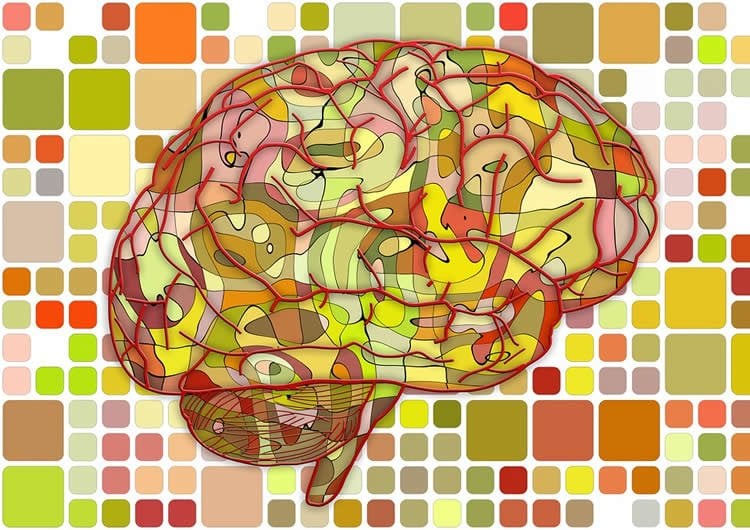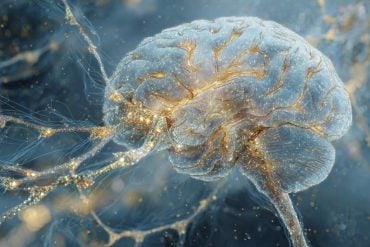Summary: Researchers report a chemical modifications that add methyl groups to RNA could help strengthen memory formation.
Source: UC Irvine.
Findings may lead to a better understanding of memory-related disorders.
New insight into the process that converts experiences into stable long-term memories has been uncovered by neurobiologists from the University of California, Irvine and the University of Queensland.
The team, led by Timothy Bredy, UCI associate professor of neurobiology & behavior, discovered that chemical modifications that add methyl groups to RNA, a process known as methylation, could strengthen memory formation. Results appear June 22 in the Journal of Neuroscience.
The modification of RNA by methylation can affect how it functions within a cell. When the researchers reduced the brain levels of an enzyme that removes methyl groups from RNA, the result was a boost in memory formation.
“By genetically silencing an enzyme in a specific region of the brain involved in memory and adaptive behavior, we saw much better memory recall in mice,” said Jocelyn Widagdo, postdoctoral fellow and co-lead author of the study from the Queensland Brain Institute in Australia.

To investigate the possible role of RNA methylation in the formation of new memories, Bredy and his colleagues searched the entire genome for methylated RNA in brain tissue from mice recently trained on a learning task. They found widespread changes in a recently identified epigenetic mark, N6-methyladenosine (m6A), on RNA when new memories were formed. Epigenetic processes are believed to be the molecular link between our genes and the environment, such as during learning.
“Our findings show that memory processing is not just influenced by epigenetic control over our DNA but also occur at the level of RNA, variations in which act like a messenger in our cells,” said Bredy. “m6A shows enormous potential because the process can rapidly fine-tune our gene function and expression, which is often impaired in a variety of neurological disorders.”
According to the researchers, a next step would be for them to determine what happens to the process during other forms of learning, and whether the network is disrupted in memory-related disorders such as post-traumatic stress disorder or phobia.
Other researchers who contributed to this work are Qiongyi Zhao, Marie-Jeanne Kempen, Men Chee Tan, Vikram Ratnu, Wei Wei, Laura Leighton, Paola Spadaro, Janette Edson and Victor Anggono.
Funding: The research was supported by the National Institutes of Mental Health (grant 1R01MH109588-01), the Australian National Health and Medical Research Council (APP1042051, APP1062570 and 477108), the Australian Research Council (DP1096148) and the John T. Reid Charitable Trust.
Source: Rahasson Ager – UC Irvine
Image Source: This NeuroscienceNews.com image is in the public domain.
Original Research: Abstract for “Experience-Dependent Accumulation of N6-Methyladenosine in the Prefrontal Cortex Is Associated with Memory Processes in Mice” by Jocelyn Widagdo, Qiong-Yi Zhao, Marie-Jeanne Kempen, Men Chee Tan, Vikram S. Ratnu, Wei Wei, Laura Leighton, Paola A. Spadaro, Janette Edson, Victor Anggono, and Timothy W. Bredy in Journal of Neuroscience. Published online June 22 2016 doi:10.1523/JNEUROSCI.4053-15.2016
[cbtabs][cbtab title=”MLA”]UC Irvine. “A New Switch To Boost Memory.” NeuroscienceNews. NeuroscienceNews, 23 June 2016.
<https://neurosciencenews.com/memory-switch-neuroscience-4544/>.[/cbtab][cbtab title=”UC Irvine”]UC Irvine. (2016, June 23). A New Switch To Boost Memory. NeuroscienceNews. Retrieved June 23, 2016 from https://neurosciencenews.com/memory-switch-neuroscience-4544/[/cbtab][cbtab title=”Chicago”]UC Irvine. “A New Switch To Boost Memory.” https://neurosciencenews.com/memory-switch-neuroscience-4544/ (accessed June 23, 2016).[/cbtab][/cbtabs]
Abstract
Experience-Dependent Accumulation of N6-Methyladenosine in the Prefrontal Cortex Is Associated with Memory Processes in Mice
The RNA modification N6-methyladenosine (m6A) influences mRNA stability and cell-type-specific developmental programming, and is highly abundant in the adult brain. However, it has not been determined whether m6A is dynamically regulated by experience. Based on transcriptome-wide profiling of m6A, we report that the level of m6A increases in the medial prefrontal cortex (mPFC) of mice in response to behavioral experience. The modulation was enriched near the stop codon of mRNAs, including genes related to neuronal plasticity. In primary cortical neurons, in vitro, modulation of m6A by the RNA demethylase FTO influenced the degradation profiles of a subset of transcripts with modulated sites. In vivo, the expression of Fto and the m6A methyltransferase, Mettl3 correlated with the observed increase in m6A levels post-training. Furthermore, targeted knockdown of FTO in the mPFC led to enhanced consolidation of cued fear memory. Thus, together with its role in early development, the dynamic regulation of m6A in the adult brain serves as an important epitranscriptomic mechanism associated with behavioral adaptation.
SIGNIFICANCE STATEMENT N6-methyladenosine (m6A) is the most prevalent internal modification on RNA, however, its cellular dynamics in vivo remains elusive. Here we provide the first demonstration of m6A upregulation in the mouse medial prefrontal cortex (mPFC) following behavioral training. Knocking down the m6A demethylase FTO in the mPFC, which increases total m6A level, results in enhanced consolidation of fear memory. Our findings suggest that m6A is regulated in an activity-dependent manner in the adult brain, and may function to fine-tune mRNA turnover during memory-related processes.
“Experience-Dependent Accumulation of N6-Methyladenosine in the Prefrontal Cortex Is Associated with Memory Processes in Mice” by Jocelyn Widagdo, Qiong-Yi Zhao, Marie-Jeanne Kempen, Men Chee Tan, Vikram S. Ratnu, Wei Wei, Laura Leighton, Paola A. Spadaro, Janette Edson, Victor Anggono, and Timothy W. Bredy in Journal of Neuroscience. Published online June 22 2016 doi:10.1523/JNEUROSCI.4053-15.2016






